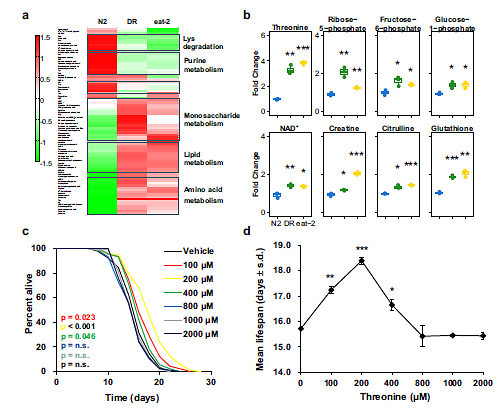
[Courtesy of Amorepacific]
Dietary restrictions have been known as a way to live a long and healthy life by increasing the efficiency of energy consumption efficiency. A research center run by Amorepacific applied bio big data and molecular biology research technologies to investigate the efficacy and mechanism of L-threonine, which is used to maintain the protein balance in the body.
Caenorhabditis elegans, a nematode worm, administered with L-threonine was found to have survived 15 to 18 percent longer than a control group, showing a more agile behavior. "If we properly understand and utilize aging-related metabolites, we will be able to increase a healthy life and change metabolism efficiently," Kim Jue-won, an Amorepacific researcher, said in a statement on November 8.
The study was prompted by the findings of previous research that intermittent fasting refers to eating only at a fixed time and maintaining an empty stomach for the rest of the time. The method is known to be effective in losing weight and alleviating anger disorders and depression. To gain perspective into the longevity and change in endogenous metabolites, Kim's team sorted dietary restriction-associated metabolites for their effects on lifespan using Caenorhabditis elegans.
"Our investigation uncovered the role of a distinct and universal metabolite, L-threonine, in dieterary restriction-mediated improvement in organismal healthspan, suggesting it could be an effective intervention for preventing senescence progression and age-induced ferroptosis," the team said in a paper published on the website of Nature Communications, a peer-reviewed scientific journal.
Copyright ⓒ Aju Press All rights reserved.





View more comments